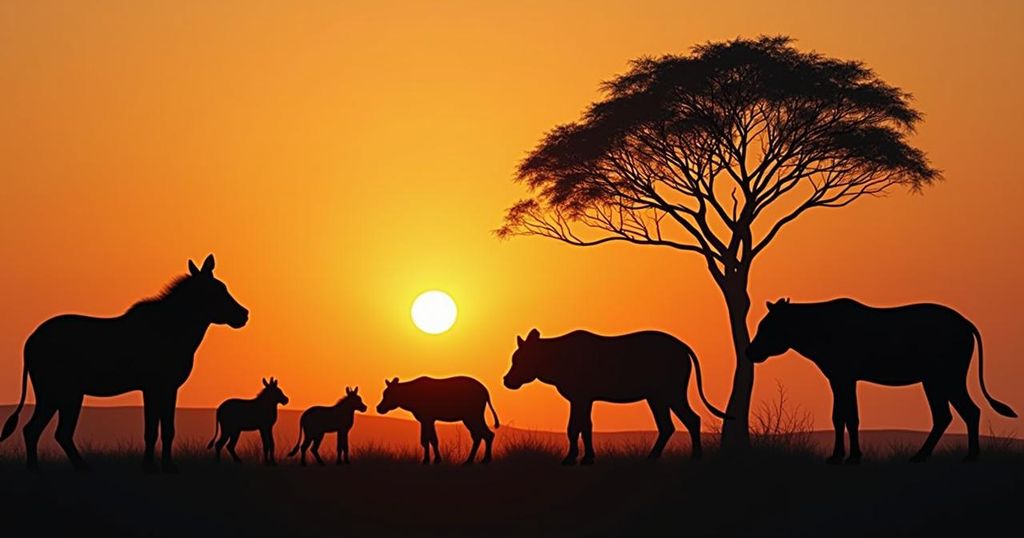Urgent Call for Action as Mpox Cases Surge in Africa
Mpox cases are rising in Africa, with 15 countries reporting outbreaks. The Democratic Republic of Congo and Burundi account for the majority of cases. There is an urgent call for increased vaccine donations and comprehensive public health interventions to manage the outbreak, following over 6,580 confirmed infections and significant numbers of suspected cases. The U.S. has committed $500 million and 1 million vaccine doses to support affected nations.
Cases of mpox, previously known as monkeypox, are on the rise throughout the African continent, prompting public health authorities and global leaders to express urgent concerns regarding the need for enhanced containment measures. Fifteen African countries are currently experiencing active outbreaks, with Morocco being the most recent to report a case. Samuel Boland, the mpox incident manager for the World Health Organization’s regional office in Africa, indicated that while the Democratic Republic of Congo and Burundi account for nearly 90 percent of confirmed cases, an increasing number of cases are emerging in additional nations. He stated, “DRC, Burundi [are] especially affected but also Cameroon, Central African Republic, Nigeria, Cote D’Ivoire, Republic of Congo, Liberia, Uganda, Kenya, Gabon, Rwanda, South Africa and Guinea.” The World Health Organization has identified two distinct strains of the virus; Clade I, known as the Congo Basin clade, and Clade II, the West African clade. According to the organization, mpox can transmit through close physical contact and occasionally via contamination of objects and surfaces touched by infected individuals. Symptoms include fever, rash, and swollen lymph nodes. As of this year, there have been 6,580 confirmed cases, with a significantly larger number of suspected cases reaching nearly 32,000. Boland reported that among those suspected cases, there have been 844 fatalities, while 32 confirmed cases have resulted in death since the beginning of January. Jean Kaseya, Director-General of the Africa Centres for Disease Control and Prevention, stated during a recent virtual briefing that the current situation of mpox is not under control in Africa. He remarked on the insufficiency of vaccine donations, noting, “Today, we have almost around 4 million commitments of doses, but we say we need more.” During an address to world leaders at the United Nations General Assembly on September 24, 2024, U.S. President Joe Biden emphasized the importance of rapid action to tackle the mpox outbreak in Africa. He announced, “We’re prepared to commit $500 million to help African countries prevent and respond to mpox and to donate 1 million doses of mpox vaccine now,” though no specific delivery date for the vaccines was provided. Biden assured that these investments would be channeled through both bilateral partnerships with countries and multilateral agencies. In addition to vaccines, Boland underscored the necessity for comprehensive public health interventions in response to the mpox outbreak. He articulated the need for scaling up efforts in surveillance, case investigation, contact tracing, infection prevention, case management, and vaccination, stating, “Things like surveillance, which will include case investigation and contact tracing — both going out into communities and looking for cases.” This multifaceted approach is crucial for encouraging communities to report illness and effectively manage infections to mitigate the spread of the virus.
The rise of mpox cases in Africa has garnered significant attention from health experts and leaders worldwide, with an emphasis on the urgent need for effective containment strategies. Historically known as monkeypox, mpox has been associated with close contact transmission and exhibits various symptoms including fever and rash. The classification of the virus into distinct clades aids in understanding its epidemiology and control measures. Current data highlights a concerning increase in infections, with two key African countries significantly affected while other nations also show rising trends.
The escalating mpox outbreak in Africa necessitates immediate and concerted efforts from both local and global health entities. With confirmed and suspected cases rising alarmingly, and a critical shortage of vaccines being reported, effective public health interventions must be prioritized. Support from international leaders, including financial commitments and vaccine donations, will be instrumental in curbing the spread of mpox, alongside robust surveillance and community engagement strategies.
Original Source: www.voanews.com




Post Comment